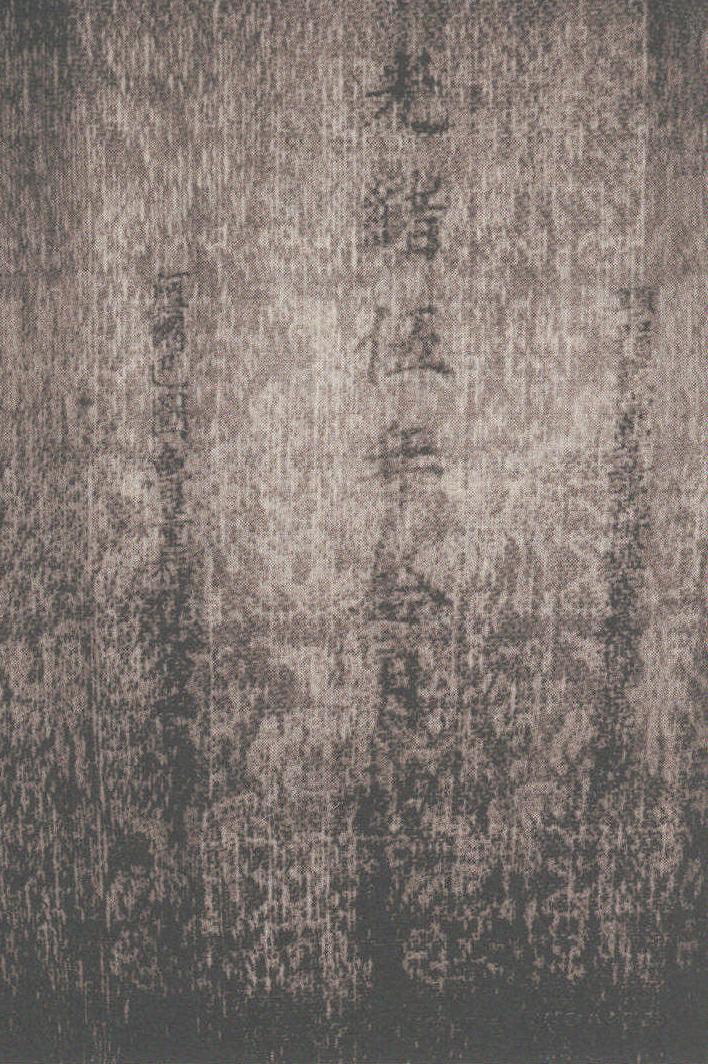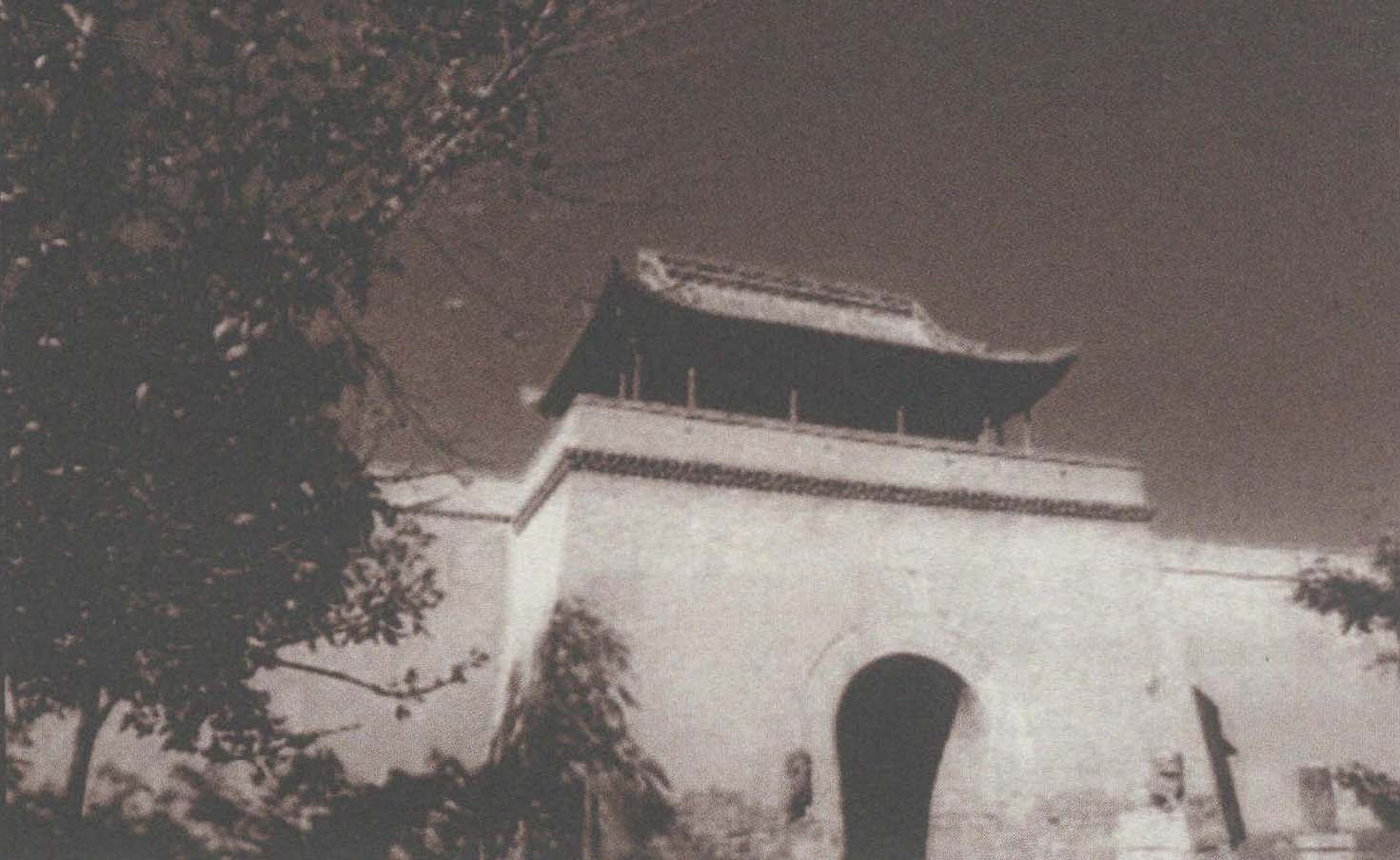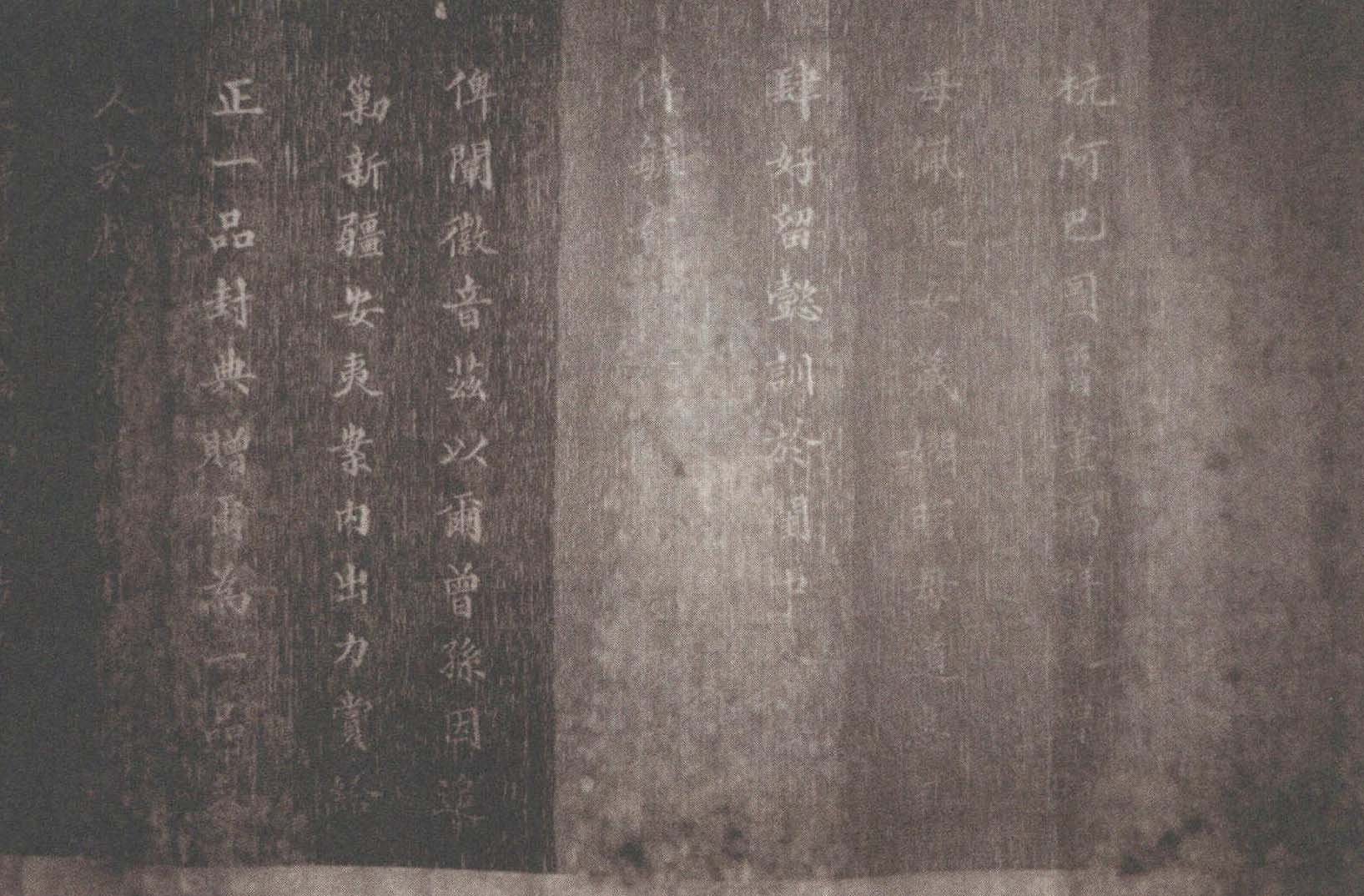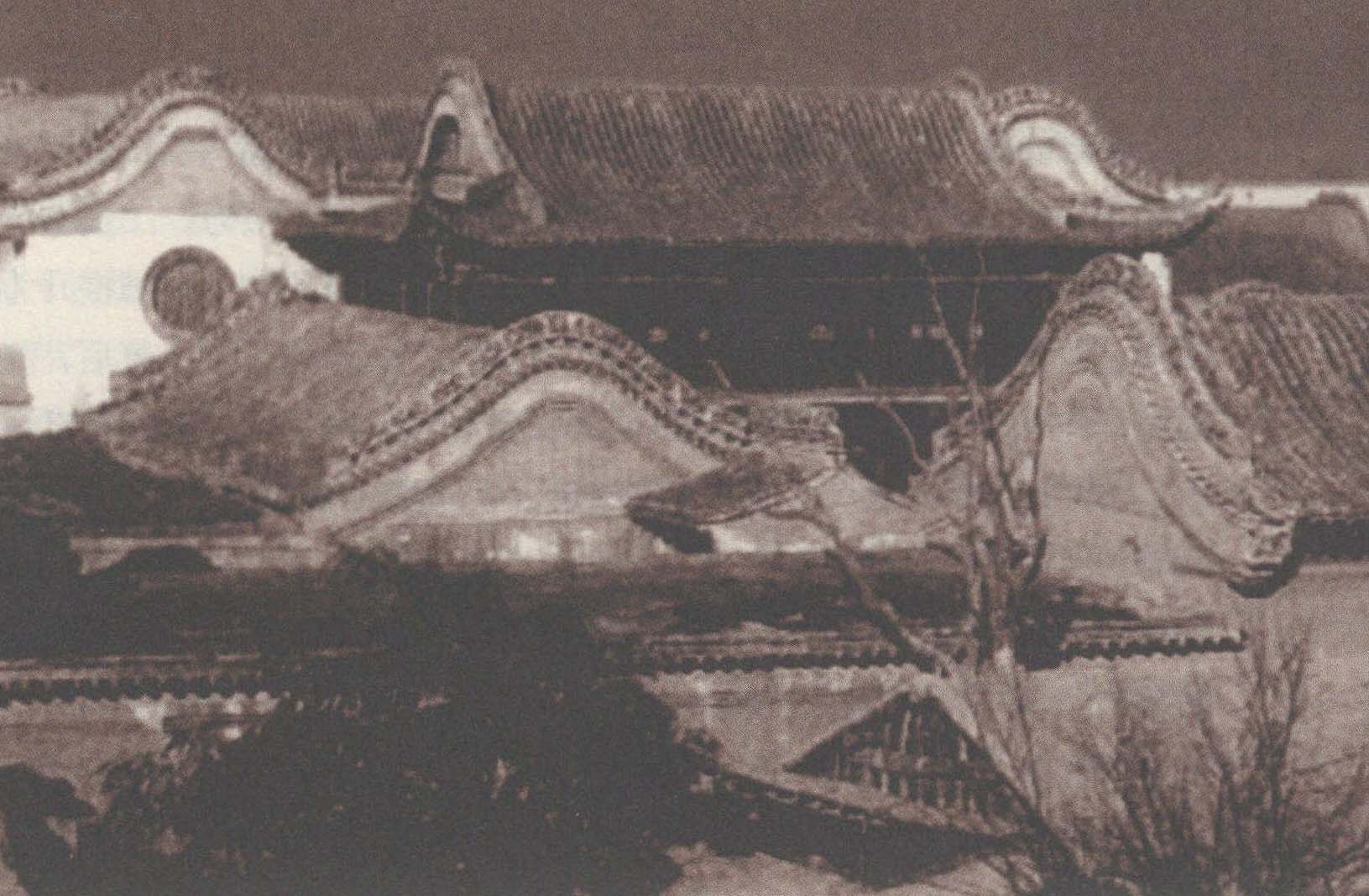董福祥 (1839~1908) ,清末著名将领。汉族。字星五。固原州(今宁夏固原市)人。张俊 (1841~1900),清末将领。字杰三。李双良(1840~1922),清末将领。字桂臣。董、张、李三人是固原小同乡,结拜兄弟,同任“哥老会”头目,一起举旗反清,同时归降清军,部众被改编为清军“董字三营” ,分任营官。在清军中再次并肩战斗,同受升赏,一同成为清末的著名将领。
董福祥出身于西北黄土高原穷乡僻壤的固原毛居井村的一个农民家庭,父亲董世猷是当地“哥老会”会首,福祥从小没有很好读书,而常出没于帮会、赌场,并谈兵习武,广交江湖侠义之士。同治年初,西北回族人民掀起大规模反清斗争以后,董福祥利用父亲的社会关系,乘机自立山堂,发展“哥弟” ,“收集逃亡” ,组织汉民民团,“以保卫桑梓为己任” ,对抗官军,支援回民军的斗争。同治三年(1864)五月以后,陇东地区各股民团推举董福祥为团总,李双良、杜乃子为副,拥众数万人马,以安化(今甘肃庆阳)一带作为根据地。他提出 “反清抗暴,保卫家乡,有饭同吃,有难同受,有福同享,有祸同当” 的口号,与回民军达成协议,互相配合,共同与清军作战,成为陕甘交界地区一支势力强大的汉族反清武装集团。同治五年 (1866)十月,当张宗禹率领西捻军打进陕西以后,董军又与捻军联合作战,把大本营迁至靖边县镇靖堡,反清烈火燃遍陕北,队伍扩大到二十万之众。曾攻占甘泉、安塞县城,威胁延安府城,对捻军东渡黄河,打入晋省,逼威清廷京畿的军事行动,起到了支援的作用。当西捻军的斗争失败以后,董福祥部便成了清军进攻的主要目标,形势对其越来越严峻。而董福祥没有失去信心,仍坚持联合回民军,主动出击,继续活跃在陕甘大地上,其时部队“众常十余万” ,自称“陕甘自卫总团大元帅” 。同治七年(1868)十一月,新任陕甘总督左宗棠率部进驻西安,筹划分南、北、中三路进剿陕甘回民军。提督刘松山是左路军的主力,统老湘军劲旅为北路,由山西永宁(今山西离石)渡河进驻绥德,开始“先平土匪” (指董军等部汉民团),待肃清陕北以后,再挥军宁夏金灵,后剿“回匪” 的军事行动。仅用一个月时间就打败董军主力李双良、张俊等部,刘松山亲督马步主力直逼镇靖堡。董福祥父亲董世猷和哥哥董福禄无力抵抗,只好识时务开城迎接刘军,“率众归诚” ,并传信严饬儿子归顺朝廷。十二月二十四日,董福祥终于率张俊、李双良各部约十万乌合之众向清军投降。经左宗棠批准,刘松山择董部精壮者,按湘军编制改编为三个营,授董、张、李三人均为五品军功,董福祥领中营,张俊领左营,李双良领右营,号称“董字三营” ,全营兵、夫约两千人。另外,又挑选三千人充当湘军运夫,其余大部均就近安置在陕甘交界地区耕垦自谋生路。

清光绪五年敕封董福祥曾祖父母诏书封面
Imperial Edict of Obliging Dong Fuxiang's Great-grand Father and hisGreat- grand Mother in the Fifth Year of Guangxu Reign of Qing Dynasty

吴忠董府
Dong Mansion in Wuzhong City

清光绪五年敕封董福祥曾祖父母诏书内文
Imperial Edict of Obliging Dong Fuxiang's Great-grand Father and his Greatgrand mother in the Fifth Year of Guangxu Reign of Qing Dynasty
董福祥部降清,不仅为湘军扫清了进攻宁灵的通道,而且使马化龙领导的回民抗清军失去了一支强有力的盟军,更为严重的是,骁勇善战,熟悉地情的 “董字三营” ,反过来却成了对付回民军的强劲敌手。八月,刘松山以“董字三营”为向导和先锋部队,开始征讨宁夏的战役。先在灵州外围与陕西回军的战斗中,董部打仗十分卖力,并在进攻吴忠堡的战斗中,他与张俊都带伤坚持不下火线。这时,董军并未引起左宗棠的重视。而刘松山通过实际考察,已看到了董福祥的忠勇可靠,所以在后来攻打吴忠堡一带的战斗中,往往一改让董部担任“策应” 、“跟应”为担当正面主攻的任务。直到是十二月十一日,在波浪湖大战中,由于董部冒死绕至长墙卡后偷袭回军,为夺取胜利起到关键性作用,董在肉搏战中,虽然右肘被枪弹洞穿,仍然指挥若定。左宗棠得报后才真正改变了对董的不信任态度,在给刘松山的信中说: “董福祥既能奋起杀贼,殊甚嘉赏。”还同意将董部正式编入官军册籍,增编马队七十名,“董字三营”从此变为清军的正规军,在攻打金积堡的战斗中充当了急先锋。同治九年 (1870)正月十四日,刘松山不听董的劝告,亲自前往招抚训话时,被暗枪击中要害,在弥留之际,他招董入帐说:“悔不听尔之言,致贼中要害。吾死矣,三湘子弟随吾深入不毛,犹子锦棠于军事,尚有经验,可辅则辅之,不然,尔自为之。”董也流泪说: “不敢有二心。”刘松山死后,他的侄儿刘锦棠接统湘军,他尊老帅之言,更是遇事必向董福祥问计,甚至在私下相见时,“必以父执之礼尊之” 。董福祥也誓为知己而死,成为陕甘回军的一大克星和死敌。十二月,马化龙领导的金积堡回民反清斗争最终失败了,董福祥由五品军功“超授都司” 、赏戴花翎、加副将衔。张、李都有升赏,“董字三营”成为清军的主力部队。
同治十年(1871)十二月至光绪元年(1875)一月,董福祥继续追随老湘军,在刘锦棠的指挥下,先后参加了对河州(今甘肃临夏回族自治州)、西宁、肃州 (今甘肃酒泉)等地撒拉族、回族穆斯林群众反清运动的大力征剿,又积功先 “以游击留于陕西尽先补用并赏给二品顶戴、二品封典花翎” 。同时,“张俊并赏花翎,赏给果勇巴图鲁名号。李双良以游击留陕西尽先补用,并赏参将衔。双良赏戴花翎” 。不久,董又被“擢升为参将” 、“荐保提督” ,其“董字三营”已扩军为马步九营,成为一支战斗力极强的劲旅。

吴忠董府
Dong Mansion in Wuzhong City
光绪二年 (1876),为了斩断英、俄帝国主义势力和阿古柏侵略者伸向新疆的魔爪,清廷任命左宗棠为钦差大臣、督办新疆军务,指挥大军西征。刘锦棠统领老湘军马步二十四营为西征大军主力,“董字三营”充当老湘军的先锋部队。此时董福祥和张俊、李双良都已被提升为副将,他们各率所部,行进在西征大军的最前列。新疆北路光复后,董福祥“赏记名总兵,并授阿尔杭阿巴图鲁名号。副统领张俊,亦赏记名总兵和正二品封典”。因左宗棠奏请,又加董福祥提督衔,并赏穿黄马褂。
光绪三年(1877)春,清军开展征服南疆的军事行动,左宗棠命刘锦棠一部攻打南疆锁钥达坂城,张曜、徐占彪两部合攻吐鲁番,然后三路会合夺取托克逊。当时,董福祥部副手、总兵张俊已着手另行组建“定远三营” 。董、张二部仍归刘锦棠统一指挥,继续担当先锋队的任务。光绪四年 (1878)一月,正式宣告结束阿古柏在新疆长达十三年的反动统治,粉碎了英、俄帝国主义妄图分裂我国领土的阴谋。董福祥在整个西征战斗中,“战无坚阵,攻无完城,和阗之复,专军攻取,厥功尤伟” ,“由是董军名震西域” 。为此,清廷加封他云骑尉世职,张俊亦赏穿黄马褂,李双良等部将都得到升赏。董福祥率部由和阗移驻喀什噶尔,总统南疆西四城(喀什噶尔、英吉沙、叶尔羌、和阗)各军。为保卫祖国主权和领土的完整作出了贡献。董福祥、张俊、李双良被赏头品顶戴,李双良赏加总兵官衔。董福祥从此在新疆度过长达十六年的守卫国门的戍边生涯。光绪十年(1884),新疆建立行省,于南疆重防阿克苏设立军镇,任命董福祥为首任镇守总兵官。光绪十六年(1890),升任喀什噶尔提督(原乌鲁木齐提督移驻,实为新疆提督),统率全疆兵马,成为西陲国门的最高军事指挥官。董福祥终于登上了清廷武将大员的高阶,并为造就一支西北武装——甘军,打下了基础。张俊也以提督衔被任命为甘肃西宁镇总兵官。李双良辞职,回到宁夏灵武王洪堡(今灵武崇兴)建府居住。
光绪二十年 (1894),清廷为慈禧太后大办六旬庆典,光绪皇帝颁谕旨,钦点各省文武大员四十一人进京,作为全国各地的代表参加贺寿大典活动,董福祥赫然荣列其中。在京时,董被赏加尚书衔,命他回甘肃省招募旧部马步十八大营,移驻通州 (今北京通县),担任京津防务。就在这期间,甘肃爆发了 “河湟事变” ,西北回民大有再燃反清烈火之势。由于中日甲午战争大局尚未全部了结,大量东调陕甘兵仍留驻内地,甘肃防务十分空虚,陕甘总督杨昌浚电奏朝廷: “请饬董福祥率全部星夜回甘。”清廷任命董以喀什噶尔提督身份督办甘肃军务。董福祥于光绪二十一年(1895)九月离京开赴甘肃,采用 “以回制回” 和“以抚为主,剿抚兼施” 的策略,旬月之间河州地区反清运动就被迅速讨平。为了稳定陕甘局势,清廷改任董福祥为甘肃提督,由张俊接任新疆喀什噶尔提督。第二年三月,董福祥又用两个月时间,再次平定了青海,震撼西北的 “河湟事变” ,全部告平。因此,清廷加封他太子少保衔,并赏赐骑都尉世职。董福祥终于进入了清朝统治集团最高核心的圈子,逐渐成为 “两宫”信赖而权倾一时的朝廷重臣和柱石。
光绪二十四年(1898),清廷再次调董福祥甘军移防近畿,成为镇压戊戌维新运动的帮凶之一。戊戌政变之后,西太后复出 “训政” ,由太后心腹大学士、直隶总督兼北洋大臣荣禄领导组建武卫新军,用以支撑清王朝将倾的大厦。武卫新军共编五军: 甘军列为武卫后军,董福祥任统领,驻防蓟州,兼顾通州,拱卫京师。张俊任武卫全军翼长。可见此时甘军的地位不仅已是朝廷直属的精锐之师、“心腹劲旅” ,被“太后倚若长城” ,而且董福祥、张俊等高级将领已成为控制国家武装力量的关键人物了。董福祥个人享受的荣誉已达到无以复加的地步,他享有在“紫禁城内骑马”和“穿貂嗉褂” 的特权和殊荣。他已钻进了后党核心圈内,成为中国近代史上最显赫的人物之一。
光绪二十六年(1900),在中国处于被列强瓜分、民族危亡的关头,爆发了以农民为主体的义和团反帝爱国革命运动。这位不懂政治的一介武夫,只知看“老佛爷” 的眼色办事,曾与义和团相配合,在廊房共同阻击西摩尔带领的八国联军,此战“为庚子之役第一恶战” ; 甘军还大胆地杀死了日本大使馆书记官杉山彬; 更有甚者,竟与义和团团民结为“兄弟” ,合作围攻东交民巷的外国大使馆。但是,八国联军终于打败了中国的军队,于八月十三日攻至北京城下。在这种非常时刻,京城内外神机、虎神和各地勤王之师“约六七万人,皆已散灭无踪” ,唯董福祥率甘军和部分义和团舍命与外国侵略军顽强血战。“在北京失陷前的一分钟,董福祥的甘军还在东直门、朝阳门一带与联军肉搏” ,直到京城完全失守后,甘军才从彰义门撤出北京。接着董福祥充当随扈大臣,率领甘军并节制满、汉各军,保护光绪皇帝和慈禧太后 “西狩” ,直至西安。“两宫”于十月二十六日抵达西安,此时陪都的防守和行宫的禁卫任务完全由董福祥的甘军负责。与此同时,庆亲王奕劻和新任直隶总督兼北洋大臣李鸿章同为全权大臣,正在北京和侵略军进行议和谈判,而董福祥则成为中外争论的焦点人物和谈判中最棘手的问题:德国带头照会各国,主张先惩凶,后议和。洋人们认为“董福祥最为首要” ,并被视为“祸首” ,必须严加惩办。清廷没有办法,将董革职。光绪二十九年(1903),董福祥归养于灵州金积堡“董府”。张俊先他于光绪二十六年(1900)病逝,谥“壮勤” 。光绪三十四年(1908)正月初九,董福祥病逝于金积堡府邸,享年七十岁。清廷对这位威震中外的一品大员,并未将其事迹宣付国史馆,也未按清律规格厚葬这位勋臣。九月,归葬于固原州南乡十里墩官山。同年,乡人为其建立“董少保故里碑” ,立于南乡官道供路人景仰。李双良闲散安度晚年,直至中华民国十一年(1922),终老于家中,享年八十二岁。
Dong Fuxiang (1839-1908),styled himself as Xingwu,Han nationality.He was a famous general at the end of the Qing Dynasty and a nativeof Guyuan prefecture (present-day Guyuan city in Ningxia). ZhangJun (1894-1900),styled himself as Jiesan and Li Shuangliang (1840-1922) asGuichen were both generals at the end of Qing Dynasty. These three people,who were fellow townsmen of Guyuan,sworn brothers and leaders of localGelao Society,rose up against Qing Dynasty and surrendered to Qing together.Their armies were reorganized to "Dong's Three Camps" and they were leadersof it respectively. In the army,they fought against the enemies shoulder byshoulder and got awards and promotion together. Thus,they became thefamous generals at the end of the Qing Dynasty.
Dong Fuxiang was born in a peasant's family in a poor village namedMaojujin in Guyuan of Loess Plateau in the northwest. His father Dong Shiyouwas a leader of local Gelao Society. When he was a child,Fuxiang did notreceive any education but go to secret societies and gambling houses frequently.He talked about military strategies with his friends and practiced martial arts. Hemade friends with all kinds of persons. At the beginning of Tongzhi reign of theQing Dynasty,after the Hui people in northwest rose up against the QingDynasty in a large scale,Dong Fuxiang,taking advantage of his father's socialrelations,seized the opportunity to set up his own Society,develop "brothers",gather fugitives and organize Han's civil corps. He held a slogan of "guardingour land" and led his people resist the government troops and supported Hui'sstruggles. After the May of the 3rd year of Tongzhi reign (1864),Dong Fuxiangwas selected to be the leader by all the troops in the east of Gansu province,andLi Shuangliang and Du Naizi to be the vice-leaders,processing over 10thousand military forces and making Anhua (present-day Qinyang in GansuProvince) as their base area. Then Dong Fuxiang held a slogan—"to resist theQing Dynasty and defend our hometown,and share food,happiness,difficultiesand disaster together. "Later,Dong made agreement with the Hui Army andcooperated with each other in the battles. Gradually,Dong's army became aninfluential anti-Qing's armed organization. In the October of the 5th year ofTongzhi reign (1866),when Nian Army led by Zhang Zongyu came intoShaanxi,Dong united Nian Army and transferred his supreme headquarter toZhenjingbu in Jingbian town. Then the movements of anti-Qing werespreaded to every corner of the north of Shaanxi. Dong's army was over 200thousand soldiers and once occupied Ganquan,Ansai and threatened theprefectural city of Yan'an. Dong's military actions supported Nian Army'smilitary actions of fighting across the Yellow River,entering Shanxi provinceand threatening the capital area of the Qing Dynasty. When Nian Army'sstruggles were defeated,Dong's army became the main aim of the Qing Dynasty.The situation became more serious. Dong Fuxiang did not lose his confidencebut united the Hui Army and persisted in struggles actively and became oneimportant army in Shaanxi and Gansu. During that period,Dong's army wasover 100 thousand soldiers and called himself "the great general of self-defensearmy in Shaanxi and Gansu". In November of the 7th year of Tongzhi reign(1868),Zuo zongdang,the newly appointed governor-general of Shaanxi andGansu,came to Xi'an with his army and encircled the Hui Army from south,north and middle. Liu Songshan,the provincial commander-in-chief,was acompetent general of Zuo's army,who was in charge of the northern part andled the army of Xiang Army. Liu Songshan started from Yongning in Shanxi(Lishi in Shanxi Province today) and came to Suide,and began the militaryaction of "eliminating the bandits firstly (the bandits referred to the Han's Armyled by Dong Fuxiang),then attacking Jinling in Ningxia and finally cleaning upthe Hui Army." Liu Songshan directed the battle of Zhenjingbu in person andtook one month to defeat the main force of Dong Fuxiang which was led by LiShuanliang and Zhang Jun. Dong Fuxiang's father Dong Shiyou and his brotherDong Fulu could not resist Liu's severe attack,so they opened the gate andwelcomed Liu's army,"led all the army surrender to Liu". Then Dong Shiyouwrote a letter to Dong Fuxiang and ordered his son to cross over and pledgeallegiance to the court of the Qing Dynasty. On the 24th of December in 1868,Dong Fuxiang,Zhang Jun and Li Shuangliang led their armies to surrender tothe Qing Dynasty. Under the permission of Zuo Zongdang,Liu Songshanchose the strong and brave soldiers in Dong's army and reorganized them into 3camps according to the establishment of Xiang Army. Dong,Zhang and Liwere conferred as the fifth rank military officer. Dong Fuxiang was the leader ofthe middle camp. Zhang Jun was the leader of the left camp and Li Shuangliangwas the leader of the right camp. They were called "Dong's Three Camps". Allthe soilders of Dong's camp were over 2000. Moreover,there were 3000porters for Xiang army. The left part of the original Dong's army was allocatedin the contiguous,of Shaanxi,Gansu and Ningxia and made a living by farming.
Dong Fuxiang's surrendering not only cleaned up the barrier to attackNingling for Xiang Army but also make the Hui Army led by Ma Hualong losta powerful allied army. More seriously,the brave and battle-wise "Dong'sThree Camps",who were familiar with the local situations,became a powerfulopponent of Hui Army. In August,Liu Songshan ordered "Dong's ThreeCamps" to be the guide and vanguard and began the punitive expedition toNingxia. In the battle of Lingzhou prefecture and in the battle against Hui armyof Shaanxi,Dong's soldiers were very brave. In the battle of attackingWuzhongbu,Dong Fuxiang and Zhang Jun were injured but they did not leavethe front. At that time,Dong's army did not gain the attention of ZuoZongtang. But Liu Songshan found the bravery and loyalty of Dong Fuxiang.After the battle of Wuzhongbu,he ordered Dong to hold his army as mainattack but not "supporting attack" or "coordinating attack". When Liu Songshanwrote to Zuo Zongtang,he wrote that "military officer Dong Fuxiang was verybrave in the battles,he was worthy of awards". However,Zuo did not expressany opinion and had no reaction. On the 11th of December,in the battle ofWeave Lake,Dong's army attacked the Hui army secretly at a great risk,and didthe great contribution to the victory. In the hand-to-hand combat,Dong'selbow was shot through,but he still directed his army calmly. When ZuoZongtang knew that,he changed his attitude to Dong Fuxiang and wrote aletter to Liu Songshan,"Dong Fuxiang was brave and killed many enemies,hewas worthy of award". He also agreed to register Dong's army in formal armyand added 70 cavalries. Then,Dong's Three Camps became a regular army ofQing. In the battle of attacking Jinjibu,Dong's army was the daring vanguardand took part in every battle. He offered advice to Liu Songshan,who was notfamiliar with local conditions in northwestern region and the customs of Huipeople and gained trust of Liu. On the 14,February 1870,when Liu Songshandid not follow Dong's advice and offered amnesty in Mawuzhai,he was shot inthe vital part by Ma Batiao. When he was dying,he asked Dong come to histent and said that: "I am regretted not to follow your advice and was shot by myenemy. Now,I am dying. My soldiers followed me and came to this poor area.My nephew was experienced in the battle,please help him if you think he isworth your assistant,otherwise,you may take my post instead of him." Donganswered his request with tears: "I will be loyal to him." After Liu Songshan'sdeath,his nephew Liu Jingtang took his post and became the general. Hefollowed Liu Songshan's words,and asked Dong's advice when he madedecisions. When they were together,Liu Jingtang even "treated Dong as hisfather". Dong Fuxiang also vowed to die for Liu Jingtang. In the battle ofbesieging Jinjibu,Dong Fuxiang charged at the head of his men and took partin the battle as the vanguard. He became the nemesis and the real enemy of theHui Army in Shaanxi and Gansu. In December,Hui Army's anti-Qing uprisingled by Ma Hualong was totally defeated. The blood of Hui people dyed DongFuxiang's Dingdai (official cap showing various ranks by button of preciousstone on top) and he was promoted to the fifth military exploit,"ChaoshouDusi",Fujiang and he was awarded Hualing. Zhang and Li also won promotionand awards. "Dong's three camps" became the main force of the Qing Dynasty;it was added cavalry and was stationed in Hongle Fu (the northern part of Jinjicounty of Wuzhong in Ningxia),Wuzhong Bu and Wanghong Bu. DongFuxiang stamped on Moslem's bodies and became one of the great general ofthe Qing Dynasty and Gan Army was taking into shape.
From December of the 10th year of Tongzhi reign (1871) to January ofthe 1st year of Guangxu reign (1875),Dong Fuxiang followed the originalXiang Army and took part in the battles of Hezhou (Lingxia Hui AutomaticState in Gansu Province today),Xi'ning,Suzhou (Jiuquan in Gansu today)under the direction of Liu Jingtang,and annihilated Hui people's anti-Qingmovement. Because of his military merits,Dong "stayed in Shaanxi as an armyof guerrilla and won second rank Dingdai and the second rank FengdianHualing". Meanwhile,"Zhang Jun won Hualing and was conferred the title of‘Guoyunbatulu'. Li Shuangliang stayed in Shaanxi as an army of guerrilla andwon Canjiang and Hualing." Soon,Dong was promoted to "Canjiang","Jianbao Tidu". "Dong's three camps" were enlarged into Mabu 9 camps andbecame an army with strong fighting capacity.
In the 2nd year of Guangxu reign (1875),in order to break the Britain andRussian's dream of invading Xinjiang,the court of the Qing Dynasty appointedZuo Zongtang as imperial commissioner to manage the military affairs ofXinjiang and direct the west expedition. Mabu twenty-four camps of originalXiang Army led by Liu Jingtang was the main force. "Dong's three camps"acted as the vanguard of the army. At that time,Dong Fuxiang,Zhang Jun andLi Shangliang were promoted to be the vice-generals. They led their owntroops and marched at the head of the army. According to the military strategyof "recover the North and then take the South" made by Zuo Zongtang,LiuJingtang ordered Dong's army to first go out of the Star Valley,cross desert,occupy Hami,and then cross Tianshan Mountain,which clear up the barriers ofentering Xinjiang. When the army took the north of Xinjiang,the court of theQing Dynasty registered military merits for all the soldiers. Dong was"promoted JimingZongbing (the military commander) and was conferred thetitle of A'er'hang'a'batulu. The vice General Zhang Jun was promoted toJimingZongbing too and conferred the second rank (used in a categoricalreference to all men of the highest official postion)." Because of Zuo Zongtang'sfurther report,Dong Fuxiang was again promoted to the provincialcommander-in-chief,and admitted to have mandarin jacket.
In the spring of the 3rd year of Guangxu reign (1877),Qing's armylaunched the military action to conquer the southern part of Xinjiang. Threeprovincial commanders-in-chief Liu Jingtang,Zhang Yao and Xu Zhanbiaoled their troops and attacked southern eight cities directly—Kashenge'er,Yingjisha'er,Ye'erqiang,Hetian,Akesu,Wushen,Kuche and Kalasha'er. If theywanted to attack the southern eight cities,they must take three importantpassageways: Dabancheng,Tulufan and Tuokexun. Zuo Zongtang ordered LiuJingtang to attack strategic gateway dabancheng,Zhang Yao and Xu Zhanbiaoto attack Tulufan and then three troops united together to attack Tuokexun. Atthat time,although the regional commander Zhang Jun,the vice general ofDong Fuxiang,was building "Dingyuan three camps",his army and Dong'sarmy were under the direction of Liu Jingtang and held the duty of vanguard inthe battle. In January of the 4th year of Guangxu reign (1878),the governmentof the Qing Dynasty declared the end of Agubo's reactionary rule in Xinjiang,smashed Britain and Russian's conspire of dividing our native land. During thewhole expedition,to Dong Fuxiang,"there was no strong position and intactcity. Dong's army recovered Hetian and did great contribution to theexpedition",then "Dong's army was famous in Xinjiang". Because of hismilitary merits,the government of the Qing Dynasty conferred Dong Fuxiangand his generations the title of Yunqiwei. Zhang Jun was conferred mandarinjacket,Li Shuangliang and other military officers won awards too. Then DongFuxiang and his army moved from Hetian to Keshenge'er,and directed thearmies in the four western cities (Keshenge'er,Yingjisha'er,Ye'erqiang,Hetian)of Southern part in Xinjiang. During this period,the border was invaded byBokehuli and Bai Yanhu,who were supported and taken advantage of czaristRussian. Dong's army took part in many battles,such as the battle ofBositangteleke,the battle of Bulunke etc. Dong's victories frustrated the enemy,who dared to invade China,and warned czarist Russian. Dong's victoriessupported the diplomatic struggles between China and czarist Russian and builtup a foundation for the recovering of Yili and guarded the territorial integrity ofChina. Dong Fuxiang,Zhang Jun and Li Shuangliang were conferred Top rankDingdai,and Dong was conferred Zhengyiping in three generations. LiShuangliang was awarded the title of the regional commander. From then on,Dong Fuxiang began his 16 years military life in Xinjiang to guard the gate ofthe county. In the 10th year of Guangxu reign(1884),Xinjiang set upXingsheng,and set up a military town in Akesu in the southern Xinjiang. DongFuxiang was appointed to Zongbingguan. In the 16th year of Guangxureign(1890),Dong Fuxiang was promoted to Keshenge'er provincialcommander-in-chief (the original Wulumuqi Tidu,Xinjiang Tidu in fact) anddirected all the troops in Xinjiang and became the most powerful militarydirector in the border. Then,Dong Fuxiang became one of the most powerfulgenerals in the government of the Qing Dynasty and his power built thefoundation for Gan Army. Although Zhang Jun was provincial commanderin-chief,he was appointed to the regional commander of Xining in Gansu. LiShuangliang asked for resignation and returned to Wanghongbao of Lingwu inNingxia (present-day Chongxing in Lingwu today). Moreover,there was onemore thing worthy to be mentioned. When Dong was in Xinjiang,he did greatcontribution in the economical development,national union,waterconservancy,opening up wasteland,developing animal husbandry and sideline.
In the 20th year of Guangxu reign (1894),the court of the Qing Dynastyheld a big ceremony for the empress dowager Cixi's 60th birthday. EmperorGuangxu issued an imperial edict and invited 41 important ministers andgenerals of different places to the capital and celebrated Cixi's birthday. DongFuxiang was one of those important persons. During that period,the SinoJapanese War of 1894-1895 was at the most critical moment,and the defense ofthe capital was a very big problem. Both the emperor and the empress took afancy to Dong Fuxiang,who was famous in Xinjiang and had great militarymerits. When Dong was in the capital,he was conferred the title of minister.The government ordered him to return to Gansu and reorganize the originalMabu 18 camps and moved to Tongzhou (Tong County in Beijing today). Itwas Cixi's birthday that rearranged Dong Fuxiang's fate. He not only becameone of the most powerful generals in the court,but also became one of theinfluential persons in Reformation Movement in 1898,Yihetuan Movementand the fighting against Eight-power Allied Forces. Moreover,his fate was fullof tragic elements. In the next year,the Sino-Japanese War of 1894-1895 wasended with China's failure,Maguan Treaty,ceding territory and indemnity.Dong was full of sorrow and resentment and he held an objective attitudetoward decision of the court. When his objection to the treaty was denied,hewas very angry and asked to return to his hometown and "visited his relatives".The emperor Guangxu said that: "Dong Fuxiang is the great commander ofGan Army,all the things was under his control. His request should not bepermitted. I know that the person was brave and honest. When the court isexperiencing hardship,Dong should try to do more things for the court".During this period,there was "Hehuang Incident" in Gansu. Hui people inNorthwest rose up and fought against the court of Qing Dynasty. Because ofthe Sino-Japanese war of 1894-1895,most soldiers of Shaanxi and Gansu stillstationed in hinterland. At this time,Gansu's defense was dangerous. Thegovernor-general of Shaanxi and Gansu,Yang Changling presented the courtby telegram: "Please order Dong Fuxiang and his army to return to Gansu ingreat haste." The court appointed Dong Fuxiang as the military commander ofKeshenge'er to deal with the military affairs in Gansu. In September of the 21styear of Guangxu reign (1895),Dong Fuxiang left the capital for Gansu. Dongwas born in Gansu and built up fortune by suppressing Hui's uprisings.Therefore he had much experience of dealing with affairs of Muslim. When hedealt with "Hehuang Incident",he followed the principle of "using Hui tocontrol Hui" and "comfort the opponent firstly and then suppress". Heappointed Fujiang Ma Anliang,whose father Ma Zhan'ao was the leader ofHui's uprising in Hezhou during Tongzhi reign,to be the leader of vanguardand suppressed the uprising quickly. In order to stabilize the situation in Shaanxiand Gansu,the court appointed Dong Fuxiang as the military commander ofGansu province and asked Zhang Jun to hold the post of him. In March of thenext year,Dong Fuxiang only took two months to put down the rebellion inQinghai and suppress "Hehuang Incident". Because of his military merits,hewas conferred Taizishaobao (junior guardian of the heir apparent) andcommandant. Dong Fuxiang became one of the cores of the leadership in thecourt finally and became the powerful and loyal minister of emperor andempress.
In the 23rd year of Guangxu reign (1897),France invaded Jiaozhouwanfirstly by making excuse. And then,all the foreign countries started theircompetition of dividing the territory of China. In the next year,in order toensure the safety of the capital,the court ordered Dong to guard the capital.Zhang Jun held the post of the military commander of Gansu. At that time,there were serious struggles between the emperor and the empress. The empressCixi objected the emperor Guangxu's reformation and planned a court coup. Inautumn,Gan Army was in the capital and stationed in Nanyuan and Jizhou (JiCounty in Hebei),which became a military base for Cixi's political coup andsuppressed the Reformation Movement of 1898. After the Reformation,Cixicontrolled the court again. In order to control the critical situation,she decidedto reform the military system firstly. Rong Lu,the trusted subordinate of Cixi,Daxueshi,Zhili Zongdu and Beiyang minister,was ordered to organize WuweiNew Army. The Empress Cixi dreamed to save the Qing Dynasty by the newarmy from decline. Wuwei New Army was divided into 5 parts and Gan Armywas Wuwei Houjun led by Dong Fuxiang,guarding Jizhou,Tongzhou and thecapital. Zhang Jun held the post of Yizhang of Wuwei New Army. At thatmoment,Gan Army became an army with strong fighting capacity which wasdirectly subordinate to the government and the trusted army of the Empress.The leaders of Gan Army like Dong Fuxiang and Zhang Jun were key personsin the court who controlled national military power. Dong Fuxiang hadincomparable special rights who could ride in the Forbidden City and woreDiaosu coat. He became one of the important persons who supported theEmpress and one of the celebrated persons in modern China.
In the 26th year of Guangxu reign (1900),when China was facing thedivision and in national perishes,an Anti-imperialism RevolutionaryMovement broke out under the leadership of Yihetuan which was mainlycomposed by peasants. Dong Fuxiang,who was born in a peasants' family of thebottom of society and lived in outlying and backward areas,had similarthoughts with the peasants and the strong feeling of exclusiveness. However,atthe time of all kinds of complicated contradictions were becoming acute,DongFuxiang,who did not know politics,political tricks,the inside stories of theruling- class and diplomatic struggles became a victim and a tragic person ofpolitics. When Cixi (mother of the emperor) took advantage of Yihetuan toresist the foreigners,Dong's army was ordered to enter and be stationed in thecapital. With collaboration with Yihetuan,they had fought against EightPower Allied Forces led by Ximo'er together. This battle was called the firstfierece battle of "Gengzi battles". Gan Army once killed Shanshanbin,thesecretary of Japanese embassy. Moreover,Gan Army coordinated with Yihetuanand attacked foreign embassies in Dongjiaomin road. However,at the end of"the Gengzi battles",Chinese armies were defeated. On 13th,August of thesame year,Eight-Power Allied Forces was at the foot of Beijing city. At thiscritical moment,more than 60 thousand and 70 thousand soldiers of the originaltroops were scattered. Only Gan Army led by Dong Fuxiang and some soldiersof Yihetuan fought against foreign army tenaciously. At the last minute ofBeijing's fall,Dong's Gan Army was having the hand-to-hand battles withforeign army at Dongzhi Gate and Chaoyang Gate. Gan Army did notwithdraw from Zhangyi Gate until Beijing was lost completely. Then,with thetitle of Suiyi Minister,Dong Fuxiang led Gan Army and some other troops,protecting the emperor Guangxu and the empress Cixi to escape from Beijingto Xi'an on the 26th,October. During that period,Dong's Gan Army was incharge of the defense affairs. Meanwhile,Qing Prince Yikuang and LiHongzhang,who was the new governor-general and Beiyang Minister,wereholding peace negotiations with foreign invaders in Beijing. Dong Fuxiangbecame the focus and the most difficult problem of the negotiation because theofficals of the Qing Dynasty were full of envy to Dong Fuxiang who comesfrom the poor area of northwest got promotion so quickly without difficultyMoreover,many ministers of the court could not bear his personalities andproud attitude any more. But because of the trust and protection by Cixi,ministers of the court felt helpless to him. To foreigners,they were much dreadof Dong because they could not forget the battles in Langfang,in embassies,andin every corner of Beijing. Naturally,foreigners wanted to kill Dong first.Germany took the lead to call for killing Dong firstly and then having peace talk.The court of agreed to punish some Princes and ministers,but they did notagree to punish Dong. On the one hand,Gan Army led by Dong was in chargeof the defense of the emperor and the empress. On the other hand,there weremany strong and brave Hui people in Dong's army; the court was not dare topunish Dong because the emperor and the empress were in the region ofMuslim. The court asked Li Hongzhang to explain the situation to the foreignrepresentatives: "Dong was a military leader and he was respected by both Hanand Hui. If we punish him recklessly,there will be great disaster. We will nottolerate him in the future and find chances to punish him." However,foreignersinsisted that: "Dong Fuxiang was the most important person",and he was "thechief culprit". The court of the Qing Dynasty "punished" Dong Fuxianggradually. On 11th,February in the 27th year of Guangxu reign (1901),thecourt dismissed Dong from his post. In the 29th year of Guangxu reign,DongFuxiang returned to "Dong Mansion" in Jinji. Zhang Jun died of illness in the26th year of Guangxu reign (1900) with the posthumous title of "Zhuangqin".On' the 9th,the first month of the lunar new year of the 34th year of Guangxureign,Dong Fuxiang died of illness in his mansion in Jinjibu with totally 70years old. The court did not treat him according to the principles. AlthoughDong was famous and had distinct exploits,his name was not written in themuseum of national history and he was not buried as a great minister. InSeptember,Dong was buried in Guanshan Mountain in Shilidun of Nanxiangin Guyuan. In the same year,his townsmen set up a "Monument to DongShaobao" on the road of Nanxiang. Li Shuangliang enjoyed his rest of life anddied in the 11th year of Republic of China when he was 82 years old.




